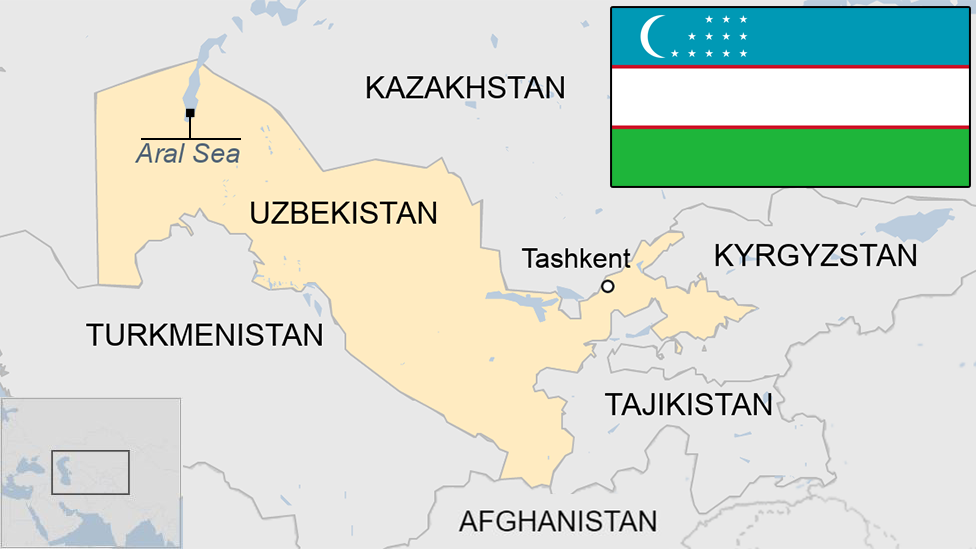Uzbekistan outcry over death of teenager Jasurbek may signal change
- Published
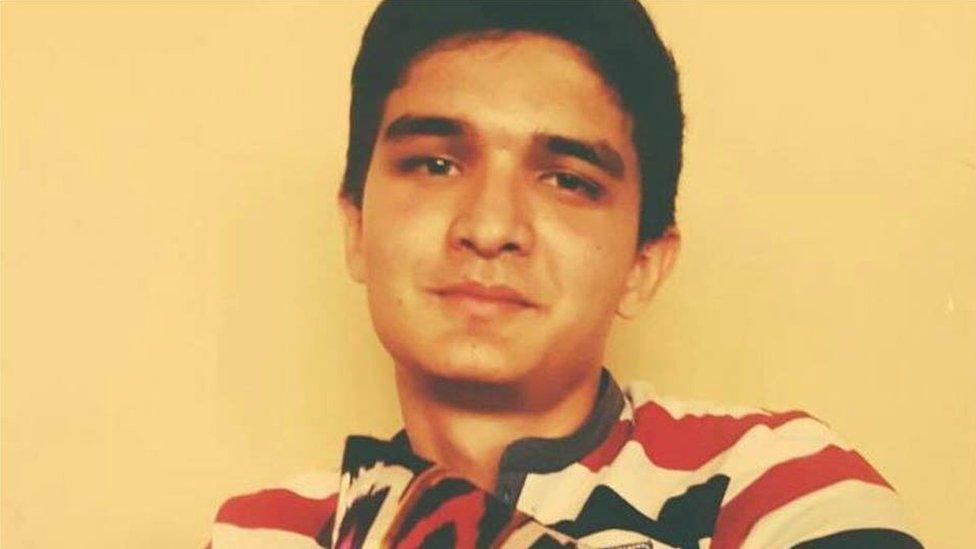
In early May, Nilufar Aliyeva received a phone call from her 17-year-old son Jasurbek. He asked her to come home urgently. His weak and struggling voice terrified Ms Aliyeva. When she got home, she saw her son covered with blood and his back was full of bruises.
Jasurbek Ibragimov was badly beaten, allegedly by a group of students who bullied him. He died in hospital a month later.
His death could have gone unnoticed. However, it has turned out to be a major shake-up for the repressive system in Uzbekistan.
Shortly before Jasurbek's death, his mother wrote a letter to the president asking for justice. That letter went viral on social media and Facebook and Telegram groups copied and shared the text.
Those who beat Jasurbek to death, Nilufar Aliyeva wrote, bragged that they could get away with it since their parents who were lawyers could buy the police.
It was this feeling of impunity that made people particularly furious about this case.
A rare online petition
Heated discussions online resulted in a gathering in the capital Tashkent where people signed a petition, demanding to those responsible for Jasurbek's death be punished.
About 600 people signed the petition. But don't be misled by that figure. For Uzbekistan, this kind of gathering is extremely rare.
The last time a crowd tried to voice their demands, the military opened fire at them. That was in Andijan in 2005. Hundreds were killed.
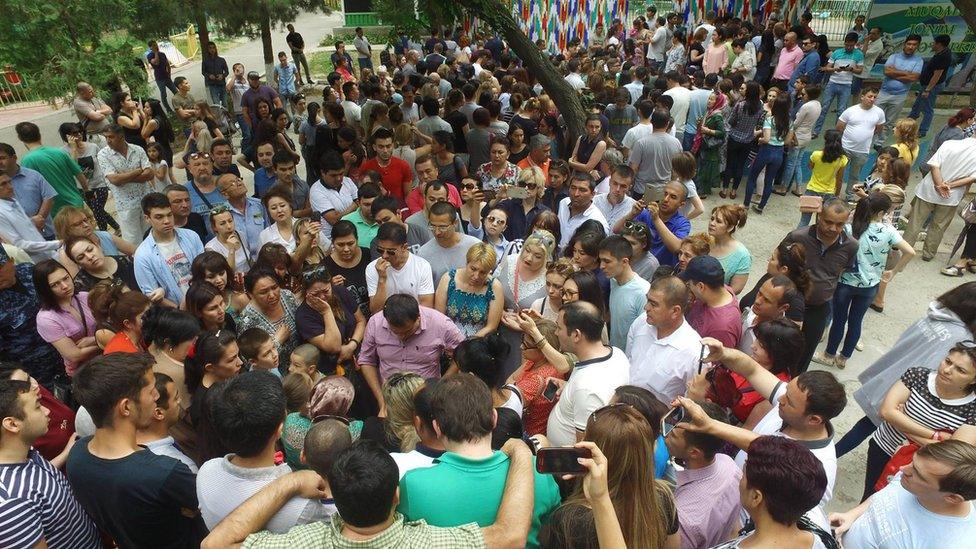
The show of public support was welcomed by the authorities
Uzbekistan is regarded as one of the most repressive states in the world.
Its human rights record is abysmal and any uncontrolled civil initiative is treated as a potential threat for the regime.
In the case of Jasurbek's death, many citizens seem to realise that they could pressurise government offices by speaking up.
Government support
And it worked. A criminal case was finally opened shortly after Nilufar Aliyeva wrote her letter to the president.
The public outcry forced the law enforcement agencies to share information about the investigation with the public.
Local media that usually remain silent reprinted the letter of Jasurbek's mother. The head of the medical college where Jasurbek studied was sacked.
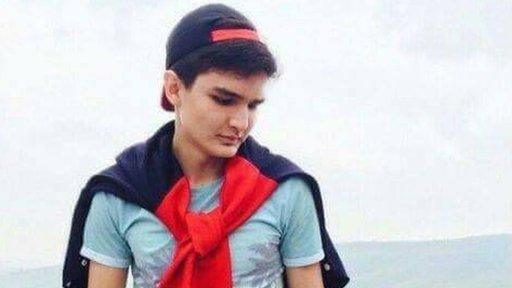
Jasurbek was only 17 when he died
But what makes this case unusual is that the government is not trying to suppress the initiative. On the contrary, they tried to assist the petitioners when they gathered to sign the document.
"It was very nice to see law enforcement officers who actually tried to help us," Mariya Legler, one of the co-ordinators who gathered signatures, said.
"They helped to co-ordinate and manage the crowd to ensure that the gathering was not messy and people wouldn't push each other. They answered the questions people raised."
In a repressive state like Uzbekistan people normally don't dare to ask police questions. Usually it's the opposite.
So far one of the suspected attackers has been arrested and charged with aggravated battery that led to the death of the victim.
Police are questioning witnesses to try to identify other individuals involved in the crime. The investigation is continuing.
A wind of change?
Such an initiative is unlikely to have been welcomed under the rule of the late Islam Karimov who died last September.
New President Shavkat Mirziyoyev has introduced a number of changes suggesting a certain degree of liberalisation.
He improved relations with neighbouring states that were extremely tense under Karimov. The European Bank for Reconstruction and Development resumed its operations that were halted a decade ago.
Several long-held political prisoners were released and the UN High Commissioner for Human Rights visited the country for the first time.
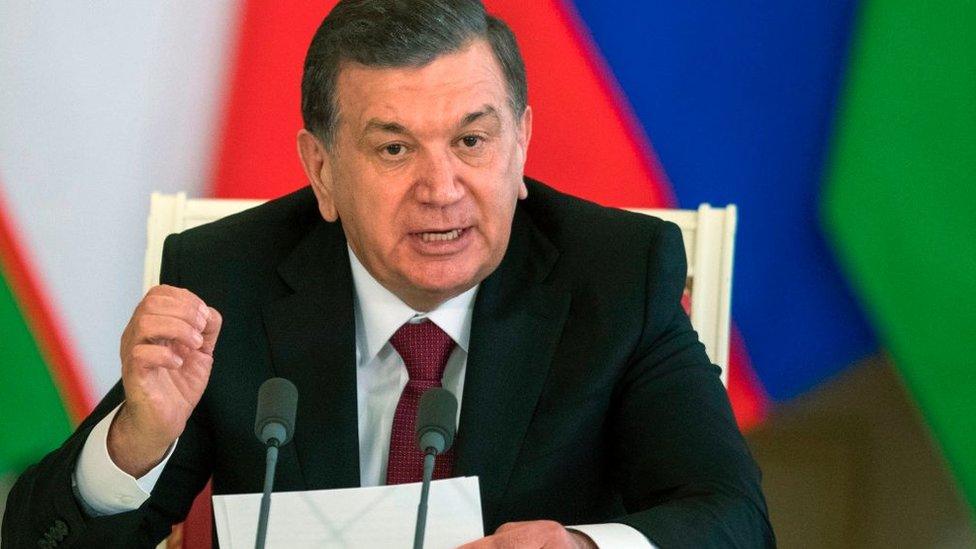
President Shavkat Mirziyoyev has somewhat liberalised the country
Some major reforms like floating the currency and introducing visa free regime were held up. The news agency Reuters reported, citing sources, that that was due to opposition from security service chief Rustam Inoyatov.
It is not clear whether Mr Mirziyoyev will continue with his reforms once the alleged infighting is over or whether he will turn to authoritarianism after he consolidates power in his hands.
But the case of Jasurbek's death illustrates how reforms can encourage a grassroots movement. Like Islam Karimov, Mr Mirziyoyev may see it as a threat to his power.
Yet so far his presidency has been more promising than many expected.
- Published30 May 2017

- Published2 September 2016
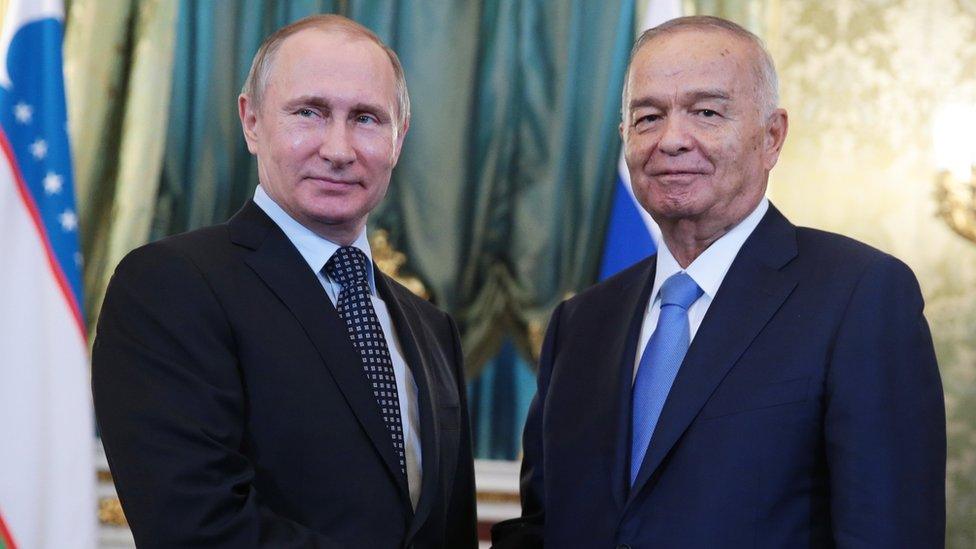
- Published30 October 2024
